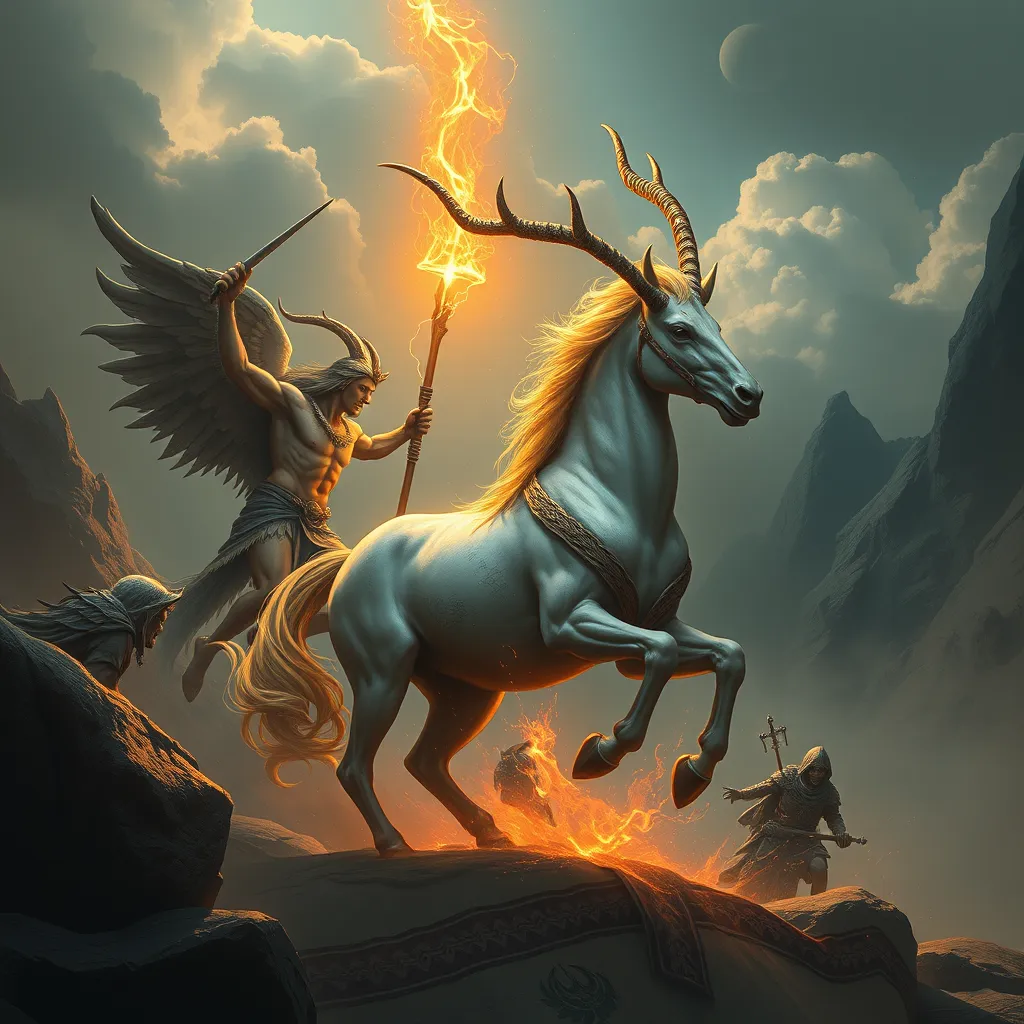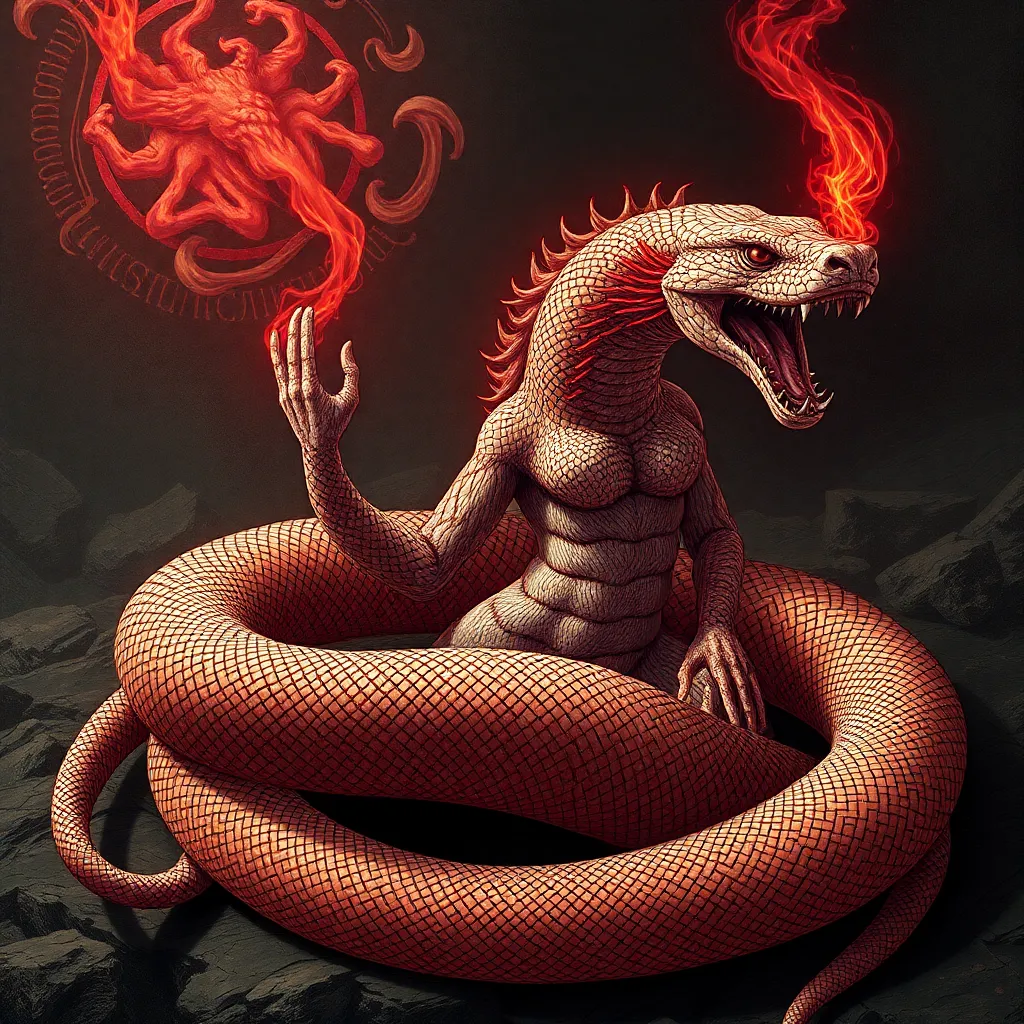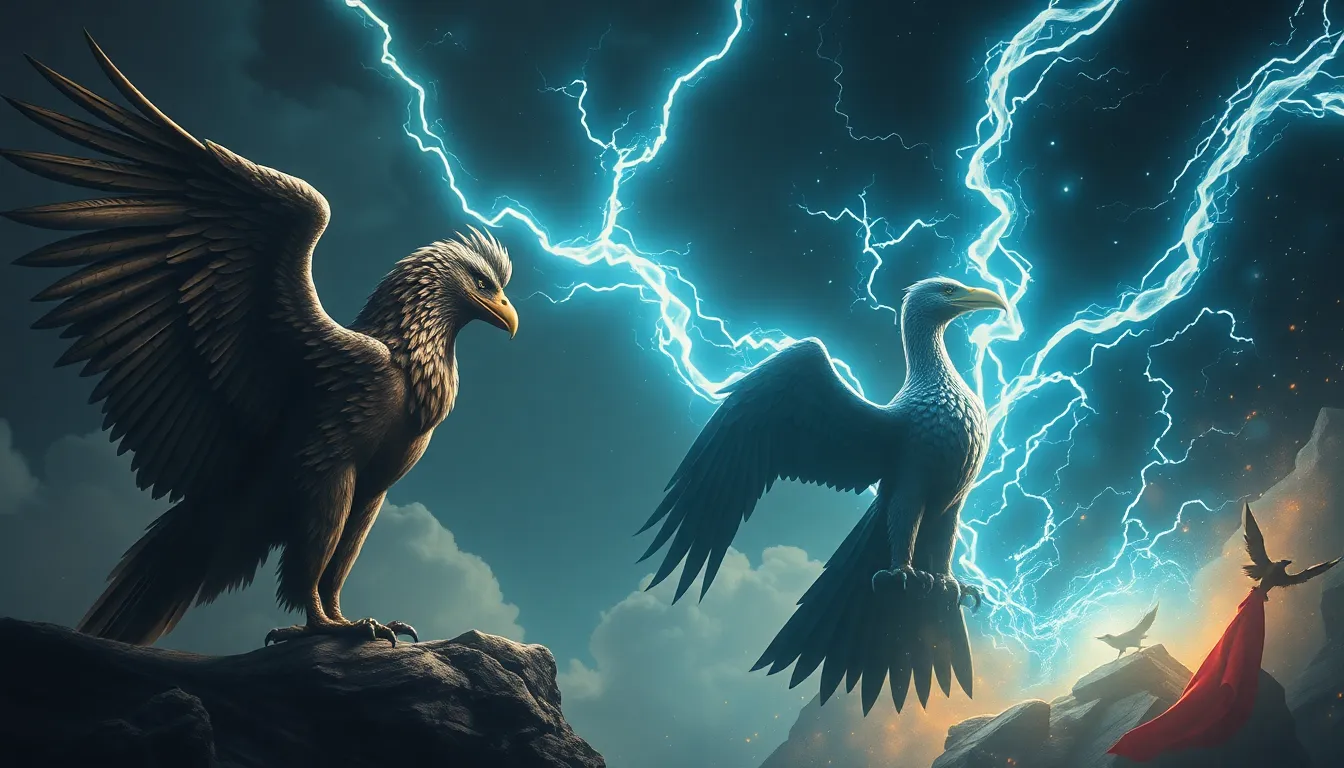The Centaur Wars: Pholus and the Birth of a Legend
I. Introduction
The Centaur Wars represent one of the most intriguing narratives in Greek mythology, encapsulating the struggles between a mystical race and the human world. These tales are not just about conflict but also about identity, honor, and the essence of coexistence. At the heart of this saga is Pholus, a noble centaur whose actions and legacy resonate through the ages.
This article aims to explore the Centaur Wars, emphasizing Pholus’s significance within this epic narrative. By delving into his background, the events leading up to the wars, and his impact on both centaur and human cultures, we can gain a deeper understanding of this legendary figure and the broader themes of mythology.
II. The Mythical Background of Centaurs
Centaurs are fascinating creatures born of both human and animal lineage, often symbolizing the duality of human nature—the civilized and the primal. Their origins are shrouded in myth, believed to be descendants of Ixion, who was punished by Zeus and thus fathered the centaurs with the cloud that took the shape of Hera.
In Greek culture, centaurs were typically depicted as wild and unruly beings, embodying chaos and savagery. However, this representation varied widely, as some centaurs, like Pholus, were known for their wisdom and nobility.
Key figures in centaur mythology include:
- Chiron: The wise and noble centaur, known for his healing abilities and mentorship of heroes.
- Pholus: A distinguished centaur associated with hospitality and wisdom.
- Other unruly centaurs, like those involved in the battle at the wedding of Pirithous and Hippodamia, who often represented the chaotic nature of their kind.
III. Pholus: The Noble Centaur
Pholus was born of noble lineage, often considered a son of Silenus, the companion of Dionysus. Unlike many centaurs, who were known for their fierce and often violent behavior, Pholus stood out due to his wisdom and demeanor. He was known to be a peaceful and hospitable figure, often welcoming heroes into his home.
In centaur society, Pholus played an essential role, serving as a mediator between humans and centaurs. His understanding of both worlds allowed him to navigate the complexities of their relationships effectively.
The distinctions between Pholus and other centaurs are noteworthy:
- Intellect: Pholus was known for his intelligence, unlike many of his brethren who succumbed to their primal instincts.
- Hospitality: He embodied the values of hospitality, often providing refuge and counsel to those in need.
- Role in Mythology: His actions often reflected a more noble purpose, contrasting with the often chaotic narratives surrounding other centaurs.
IV. The Prelude to War
The Centaur Wars did not erupt without warning; tensions had been simmering for years between humans and centaurs. The conflict can be traced back to cultural misunderstandings, territorial disputes, and the actions of unruly centaur factions that longed for dominance over their human counterparts.
Key events leading to the outbreak of war included:
- The infamous wedding of Pirithous, where the centaur guests, driven by wine and chaos, assaulted the bride and her guests.
- Incidents of centaur raids on human settlements, which fueled human resentment and retaliation.
- The growing influence of aggressive centaur leaders who sought to unify their kind against humans.
Pholus, being a voice of reason, found himself torn between his kin and the humans he respected. He sought to mediate peace but faced increasing pressure as war loomed closer.
V. The Centaur Wars: Key Battles and Events
The Centaur Wars were marked by several key battles that showcased the ferocity of the centaur warriors and the strategic prowess of human fighters. Pholus played a vital role in these conflicts, often acting as a strategist and a voice of reason amidst the chaos.
Some major battles included:
- The Battle of Mount Pelion: A pivotal confrontation where centaur forces clashed with human armies.
- The Skirmish at Pholus’s Glen: A battle where Pholus attempted to broker peace but ended up defending his home from human aggression.
- The Final Stand: A climactic battle that saw centaur warriors fighting valiantly for their survival.
Throughout these battles, Pholus’s strategies often emphasized understanding the enemy’s weaknesses and leveraging the centaur’s unique abilities. His moral compass guided many of his fellow centaurs, making him a pivotal figure in the wars.
VI. The Legacy of Pholus
Pholus’s impact on the outcome of the Centaur Wars cannot be understated. His noble actions and attempts at peace left a lasting impression on both centaur and human cultures. After the wars, he was celebrated as a symbol of nobility and sacrifice, representing the potential for harmony between different races.
Cultural and literary references to Pholus emerged in various works, portraying him as a tragic hero whose wisdom was overshadowed by the chaos of war. His story became a cautionary tale about the consequences of conflict and the importance of understanding.
In essence, Pholus transformed into a symbol of:
- Nobility: His character represented the best qualities of the centaur race.
- Sacrifice: He was willing to lay down his life for the greater good.
- Coexistence: His legacy emphasized the need for peace and understanding between different cultures.
VII. Lessons from the Centaur Wars
The Centaur Wars encapsulate profound themes of conflict, identity, and the quest for coexistence. They illustrate the complexities of relationships between different races and the potential for both destruction and unity.
Reflections on the consequences of war are evident throughout the myths, serving as powerful reminders of the human condition:
- Conflict: The wars highlight how misunderstandings can escalate into violence.
- Identity: They evoke questions about what it means to belong to a particular race or culture.
- Coexistence: Ultimately, they suggest that understanding and diplomacy are paths to harmony.
The enduring relevance of the Centaur Wars in modern storytelling can be seen in various adaptations across literature and film, reinforcing the timeless nature of these themes.
VIII. Conclusion
In summary, Pholus’s significance in the Centaur Wars underscores the complexities of mythological narratives and the lessons they impart. His legacy as a noble centaur who sought peace amidst chaos continues to resonate, reminding us of the importance of understanding and coexistence.
As we delve into the rich tapestry of centaur mythology, we are invited to explore the deeper implications of these tales and their relevance to our world today. The story of Pholus, and indeed the entirety of the Centaur Wars, beckons further exploration and reflection.



